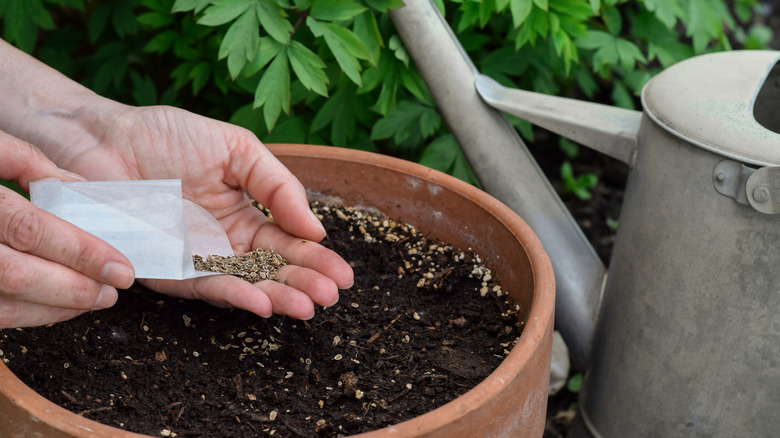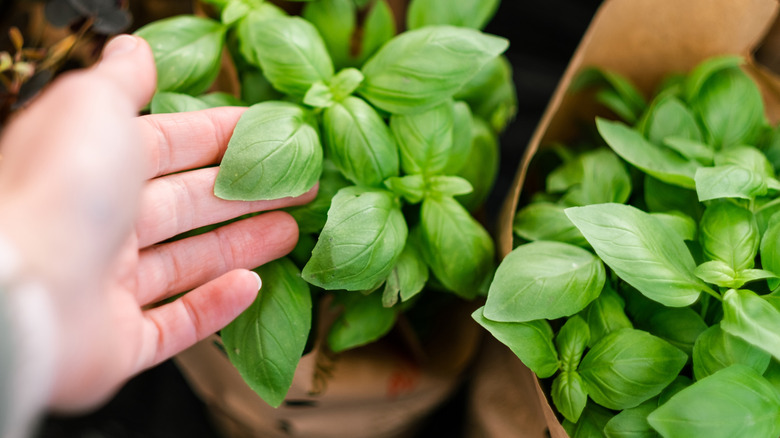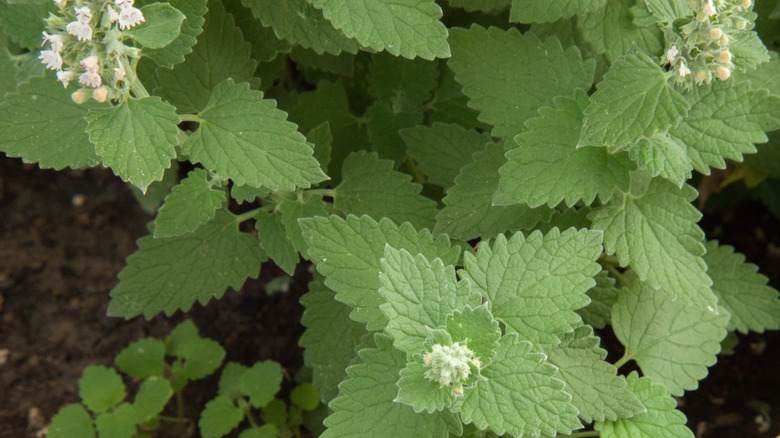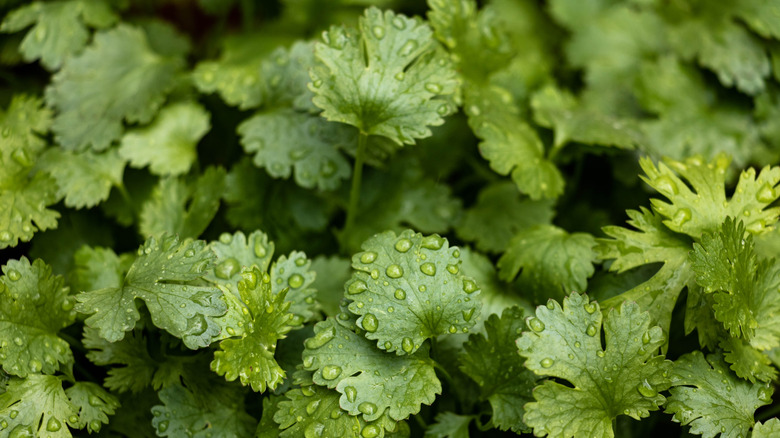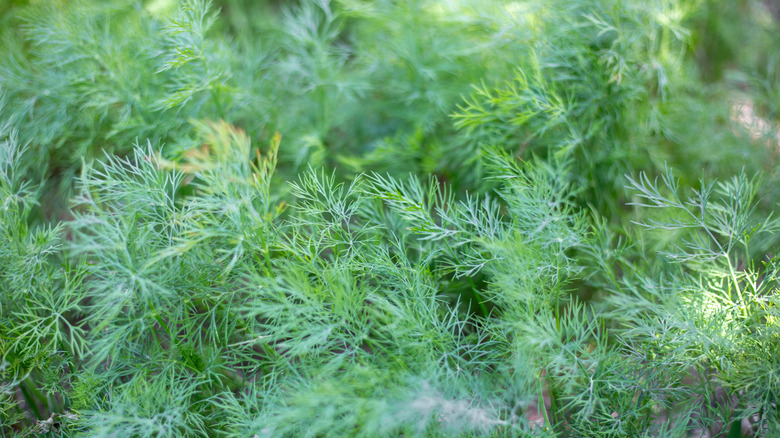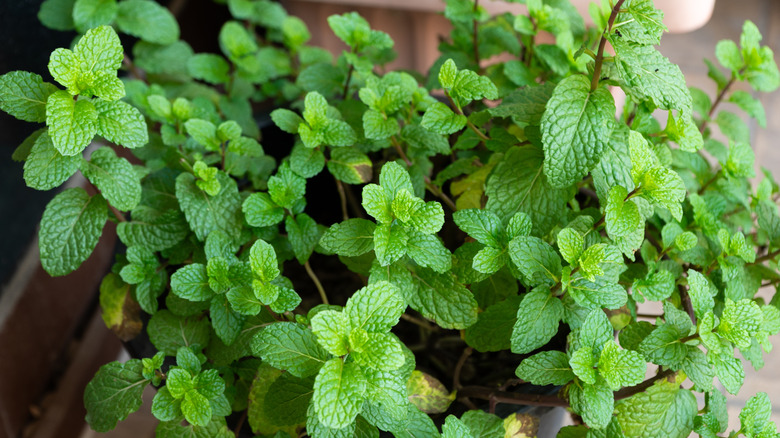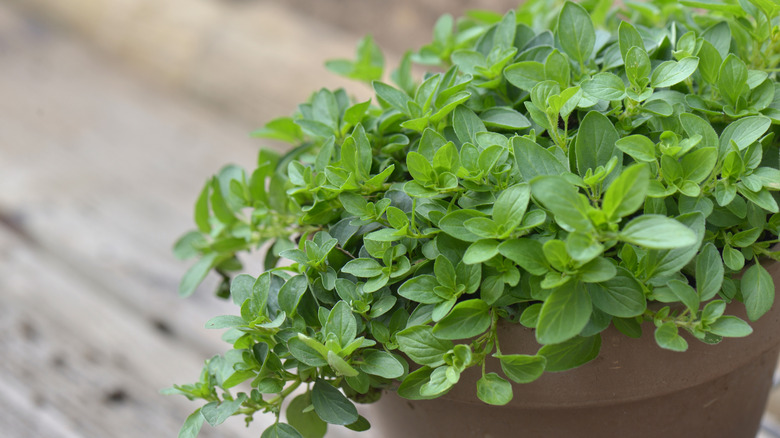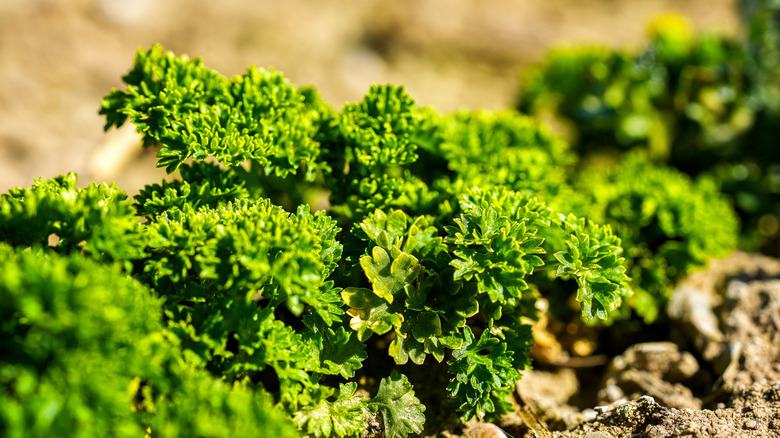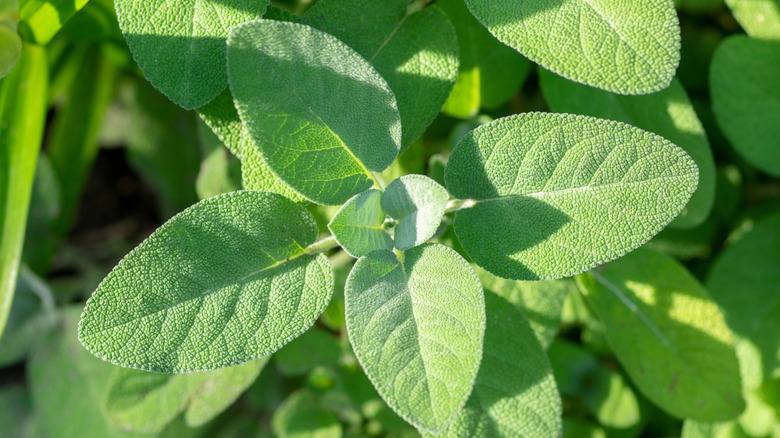The 8 Easiest Herbs To Grow From Seed That Are Perfect For Beginner Gardeners
Growing an herb garden is often a top priority for new gardeners, but the price of purchasing a dozen or more nursery-grown plants can quickly add up. When money is an obstacle between you and the herb garden of your dreams, growing new plants from seeds is a more affordable way to get the basil, parsley, or sage you're hoping to harvest. And since there are many herbs that are very easy to grow from seed, propagating aromatic plants in this way can turn into a fun, confidence-boosting project for a beginning gardener.
The following selection of herbs are all perfectly easy to grow from seed, making them well-suited gardening projects for newbies. However, no growing endeavor is easy unless you're equipped with the right information. Beginning gardeners will want to know how long they will need to wait for seeds to germinate, and whether to expect an annual plant that only lives for one season, or a perennial that comes back year after year. Some of these plants will grow best when seeds are started indoors, while others should be sown directly into the garden soil. And knowing the best soil depth for each type of herb may determine whether you find a vigorously growing seedling, or a bare patch of soil after the allotted germination time has passed.
Basil
Are you hoping to grow the perfect addition to fresh salads and pastas? An annual herb, basil (Ocimum basilicum) produces delicious leaves that shine in summer meals. Growers with long growing seasons can sow basil seeds directly into the garden, while those with shorter growing seasons may prefer to start these seeds indoors. Growing basil from seeds is easy — just remember to cover seeds with soil ¼ inch deep. Basil seeds can take up to 10 days to germinate.
Catnip
When you want to grow a treat for the kitties in your household, catnip (Nepeta cataria) is the obvious choice. It's also a great herb for beginning gardeners since it can be easily grown directly in the garden or started indoors in late winter. You should grow catnip even if you don't have cats, because pollinators love it, and you can make herbal tea out of it. A perennial in USDA Hardiness Zones 3 to 9, catnip seeds should be covered with soil ⅛ to ¼ inch deep. Catnip may take up to 15 days to germinate.
Cilantro
Do you need a steady supply of fresh seasoning for your spring meals? Cilantro (Coriandrum sativum) is a fast-growing, annual herb that is best sown directly into the garden in spring. These larger, easy-to-grow seeds are planted ½ inch deep. Allow up to two weeks for cilantro seedlings to poke their heads above the soil. Once you've cultivated your cilantro crop, you should let your cilantro bolt to provide food for pollinators and allow the flowers to mature into coriander seeds.
Dill
The perfect addition to dips and pickles, dill (Anethum graveolens), a cool season, annual herb, grows best when seeds are sown directly in the garden in early spring. This member of the carrot family is a big hit with pollinators and other beneficial insects and is such an easy-grower that it can self-seed, producing a perpetual crop in your backyard. Press dill seeds into the surface of the soil without covering them. Beginning gardeners will need to be patient with dill seeds, which can take up to 25 days to germinate.
Mint
There's little more refreshing than freshly brewed mint tea. There are many different species of mint (Mentha spp.), and these perennial plants are easy to direct sow or to start in nursery pots for later transplanting. Since there are different types, the hardiness of different mints will vary, with spearmint, for instance, being hardy in zones 5 to 9. Take care not to cover mint's very tiny seeds when planting them — they should be sown on the surface. Expect mint seeds to germinate within two weeks. Some mint species are invasive, so check with your local extension office before planting.
Oregano
When you're craving homegrown seasoning for the meals in your Mediterranean diet, oregano (Origanum spp.) is the perfect choice, and it's one of the herbs you can start sowing indoors in late winter for a spring garden. Alternately, you can also directly sow oregano seeds outdoors. Oregano is a perennial in zones 3 to 9, and its small seeds need to be sown ⅛ to ¼ inch deep. Oregano grows easily and its seeds germinate within 10 days.
Parsley
More than a garnish, parsley (Petroselinum crispum) is an easy-to-grow herb that'll attract more butterflies to your garden. Parsley is a biennial plant that produces flowers in its second year and easily self-sows to create an ongoing supply of fresh herbs. This member of the carrot family grows best when sown directly in the garden. Cover parsley seeds with soil ¼ inch deep, and give them up to a month to germinate.
Sage
The perfect flavoring for autumnal meals, sage (Salvia officinalis) is one of the herb seeds you can plant and grow in winter. Loved for its savory flavor, sage is a drought-tolerant plant that is perennial in zones 4 to 8. Sage can easily be directly sown if preferred, but it also grows well when sown indoors and transplanted out. Sage seeds are small and need to be covered with soil ¼ inch deep. Sage seeds will germinate within three weeks.
